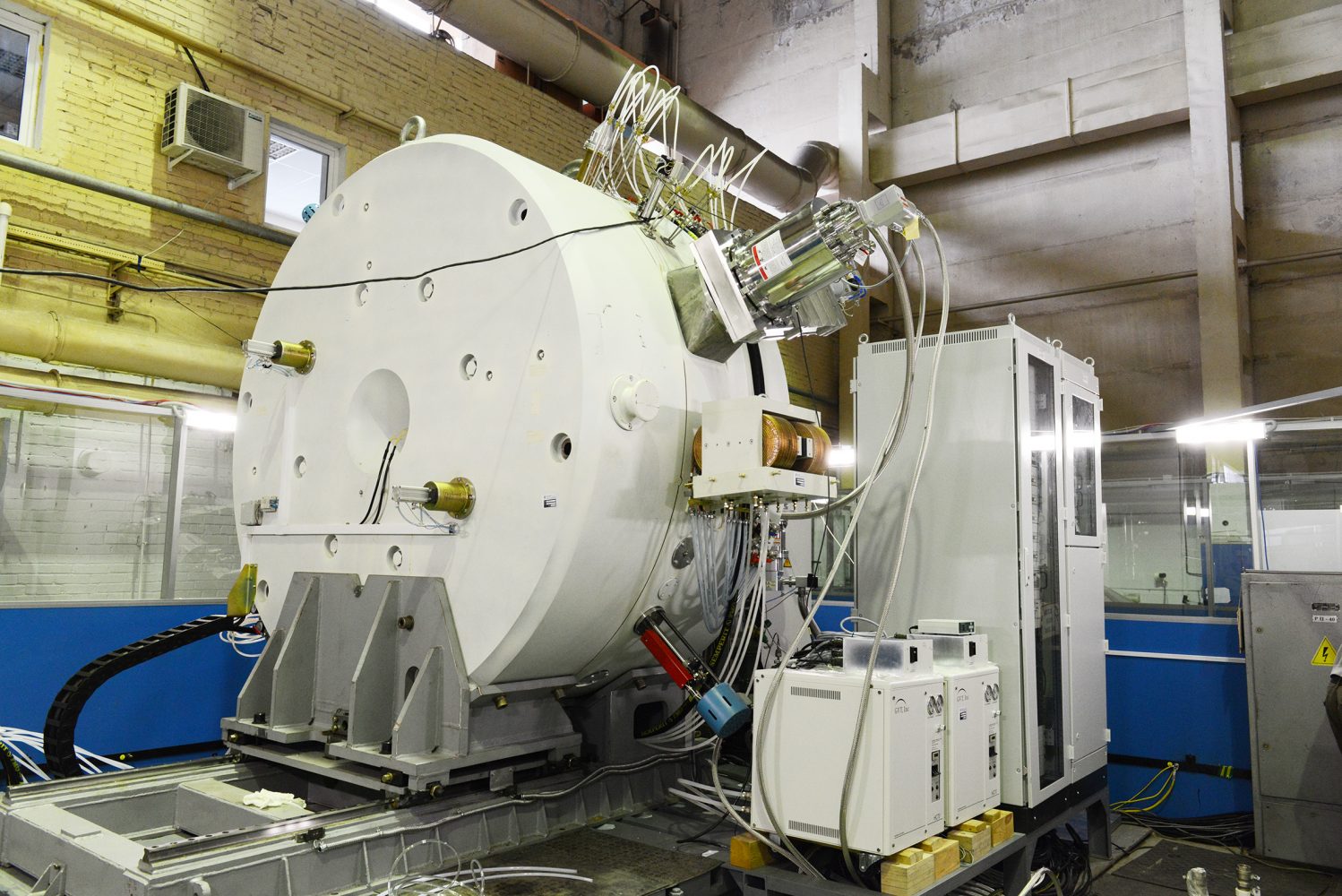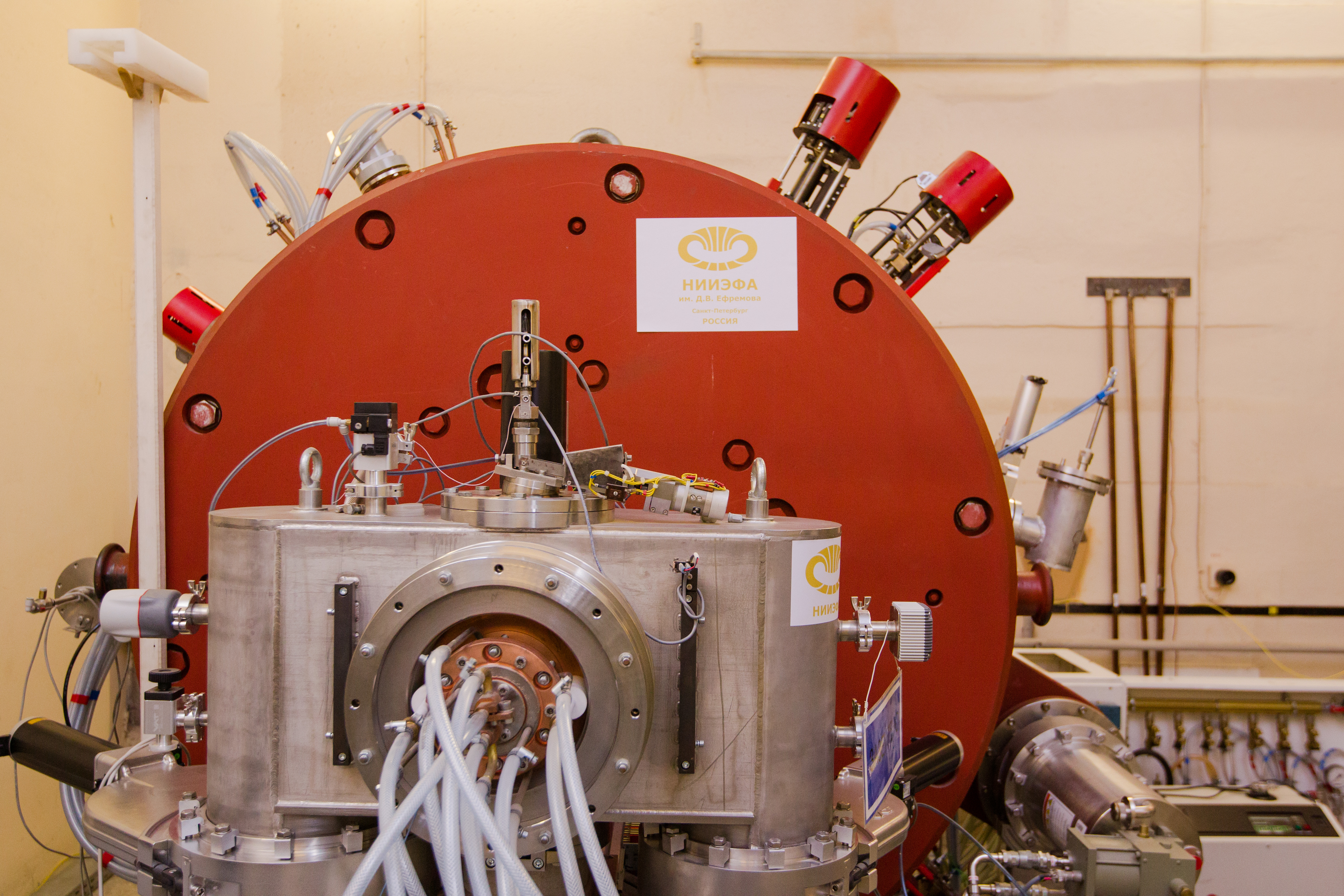
Royal Cyclotron
back to contentsThe equipment supplied by Efremov Research Institute (see the information below) is needed to construct a Model СС‑30/15 cyclotron. The cyclotron is a central component of the radiochemical facility built by Rusatom Healthcare (Rosatom’s medical project integrator) and Kinetics Corporation Lt. in Nakhon Nayok Province.
Before the shipment, the equipment passed acceptance tests with experts of Efremov Institute confirming its operability. The capacity of the equipment turned out to be higher than designed, with three times higher beam current stability and two times higher beam intensity.
The compact multi-purpose isochronous cyclotron СС‑30/15 will be used to accelerate negatively charged ions of hydrogen and deuterium and will have an ability to control the final energy of accelerated particles within the range of up to 30 and 15 MeV, respectively. Similar cyclotrons are produced in Belgium and Canada. However, they are horizontal and need a 10×10 m site. The Russian cyclotron is positioned vertically and only take up 6×7 m space. It is distinguished by an external injection system that increases the beam intensity considerably, maintains high vacuum and reduces radiation exposure during operation.
The radiochemical laboratory, which is part of the cyclotron facility, can synthesize radiopharmaceuticals for accurate diagnostics and treatment of a wide range of diseases, particularly cancer and cardiovascular conditions. The cyclotron facility can also serve as a research and development platform for new medical radionuclides.
It gives scientists an opportunity to study property changes in materials (in particular, semiconductors) under the influence of proton, deuteron and neutron beams, radiation corrosion of materials, radiation stability of radioelectronics and the structure of neutron-excessive nuclei, as well as to perform neutron activation analysis.
“Extracted proton beams are used in the radiation material science for proton doping. Apart from that, the facility allows for X-ray spectroscopy of historical artifacts to trace their origin. Today, fakes are often claimed to be antiquities and priced much higher than they really cost,” Yuri Gavrish, Director of the R&D Center for Linear Accelerators and Cyclotrons at Efremov Research Institute, explained.
He added that the cyclotron project was very important for the institute. “We make ourselves known in Southeast Asia. It is a very promising market: if a country has a new technology, its neighbor wants to have the same. Much interest to radiochemical facilities is paid in Malaysia and the Philippines,” the scientist noted.

Rosatom has also trained the operation, maintenance and production personnel for the under-construction facility. The staff was instructed by scientists and researchers from the National Nuclear Research University (MEPhI), Efremov Research Institute, Rusatom Healthcare, radiopharmaceutical manufacturer BIONT (Slovakia), and Granov Russian Research Center for Radiology and Surgical Technologies. They studied theoretical aspects of accelerators and the production technology for radiopharmaceuticals based on Cu‑64, Zr‑89, Tl‑201 and Ga‑67 isotopes.
“We formed a highly qualified team consisting of young and experienced researchers to develop a design for the new cyclotron facility. They proposed a number of innovative technological, engineering and scientific solutions. It is a great step forward in the development of cyclotron technology. We have entered the ranks of leading global manufacturers of particle accelerators,” Yuri Gavrish said.
The contract for the construction of a cyclotron radiochemical facility for Thailand Institute of Nuclear Technology was signed in September 2017. The facility was meant to use technology solutions developed by Rosatom and its group companies. This is the second CC30/15 cyclotron designed and produced at Efremov Research Institute. The first one was manufactured in 2009 for the University of Jyväskylä (Finland).
Since then, it has been upgraded. For the new cyclotron, scientists of Efremov Institute have developed automatic targets that make it possible to fabricate radioisotopes, transfer them for reprocessing, and simultaneously monitor the radiation level in the premises. The control system has also been upgraded.
The cyclotron equipment is expected to arrive in Thailand this September.
What is Efremov Research Institute?
Efremov Scientific Research Institute of Electrophysical Apparatus is a leading engineering and production center in Russia. It develops electrophysical installations and facilities for research in plasma physics, nuclear physics, particle physics, healthcare, radiation and energy technology, and introscopy.




